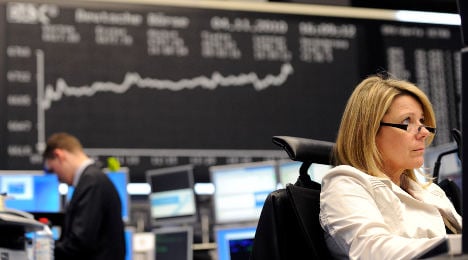The group’s index soared to 15.4 points from 4.3 points in December, its highest level since July 2010 as the biggest economy in Europe geared up for more growth in 2011.
Analysts polled by Dow Jones Newswires had expected the volatile German indicator to reach 8.0 points, and the new level remained below the historical average of 26.8 points. But it was the third increase running after six declines, leading economists to conclude the economy will remain relatively strong this year.
On Friday, the Ifo index will flesh out a clearer picture of German business sentiment but at least the financial sector was upbeat as the ongoing eurozone debt saga played on with a meeting of finance ministers in Brussels.
They signalled readiness to bump up a euro emergency fund but stressed that vulnerable countries must first put their finances in order.
The ZEW indicator meanwhile, based on a survey of 284 analysts and institutional investors, suggested that “financial market experts expect the dynamic growth of the German economy to continue,” a statement said.
“This development is backed by current data on incoming orders in the German industry,” it added.
German industrial orders posted a surprise 5.2 percent monthly gain in November, indicating solid business activity ahead.
ZEW president Wolfgang Franz also highlighted current low interest rate levels that should boost demand for German goods and said positive data from the US had raised hopes that global growth would continue.
German growth should get an additional boost from increased job security, which typically stimulates household consumption, Franz added.
Meanwhile, investors’ assessments of their current situation changed little but nonetheless gained 0.2 points to an indexed 82.8 points, the highest level since August 2007.
ING senior economist Carsten Brzeski said: “It looks as if there is almost blind trust in the strength of the German recovery.”
Berenberg Bank chief economist Holger Schmieding added that the third consecutive increase in the ZEW index “supports our view that the German economy will stay reasonably robust in 2011.”
Commerzbank’s Ulrike Rondorf concurred, saying: “The camp of optimists believing in an improvement has widened.”
AFP/mry



 Please whitelist us to continue reading.
Please whitelist us to continue reading.
Member comments